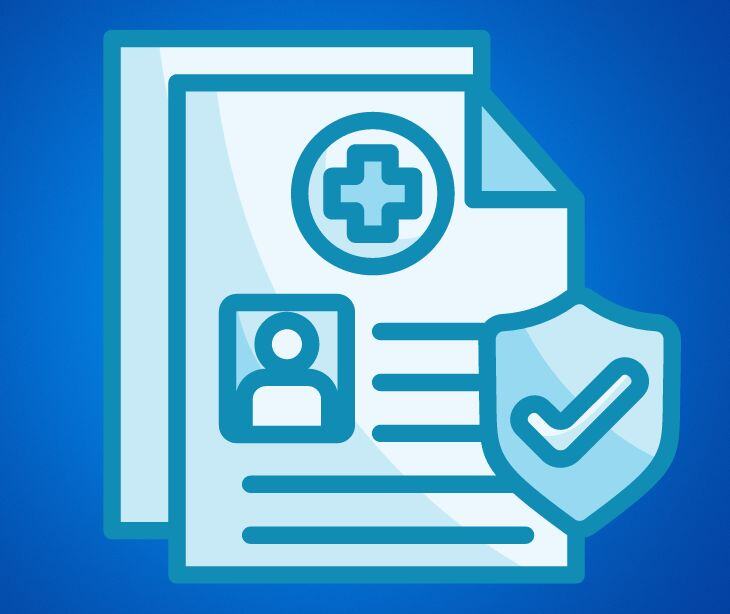
KnowBe4, the provider of security awareness training and phishing simulation platforms commissioned Osterman Research to survey 1,000 U.S. employees to assess their understanding of security threats and evaluate the effectiveness of their existing training. The study revealed that “44% of respondents were not sure whether their employer was subject to six different privacy regulations, including the GDPR and HIPAA.” This suggests that some employees are not aware of the regulations that govern them and therefore may be non-compliant.
HIPAA awareness is understanding and implementing the standards and practices required by the Health Insurance Portability and Accountability Act (HIPAA) to ensure the protection and confidentiality of protected health information (PHI).
Components of HIPAA awareness
Understanding HIPAA regulations
- Knowledge of the Privacy Rule, Security Rule, Breach Notification Rule, and Enforcement Rule.
- Awareness of how these rules apply to daily operations within a healthcare setting.
Go deeper: Understanding and implementing HIPAA rules
Recognizing protected health information (PHI)
- Identifying what constitutes PHI, including any information that can identify an individual and relates to their health status, healthcare provision, or healthcare payment.
Go deeper: What is protected health information (PHI)?
Implementing safeguards
The HIPAA Security Rule mandates that healthcare professionals protect the electronic PHI (ePHI) of their patients. To achieve this, the following safeguards must be implemented:
- Administrative safeguards: Policies and procedures to manage the security measures protecting ePHI.
- Physical safeguards: Measures to protect physical access to information.
- Technical safeguards: Use of technology to protect PHI and control access to it.
Learn more: What are administrative, physical and technical safeguards?
Conducting risk assessments
- Regularly evaluating potential risks to PHI and implementing measures to mitigate these risks.
Learn more: How to perform a risk assessment?
Training and education
- Providing ongoing education and training for all staff members to ensure they understand HIPAA requirements and their role in protecting PHI.
Handling breaches
- Knowing the procedures for responding to a breach of PHI, including notification requirements and mitigation steps.
Patient rights
- Understanding patients' rights under HIPAA, including their rights to access their health records, request amendments, and receive an accounting of disclosures.
The importance of HIPAA awareness
- Legal compliance: Ensures that healthcare providers comply with federal regulations to avoid penalties and legal action.
- Patient trust: Maintains and builds trust with patients by ensuring their sensitive information is protected.
- Preventing data breaches: Reduces the risk of data breaches by implementing appropriate security measures and protocols.
- Enhancing security culture: Fosters a culture of security within the organization, emphasizing the importance of protecting patient information.
See also: HIPAA Compliant Email: The Definitive Guide
Steps to enhance HIPAA awareness
- Regular training sessions: Conduct regular training sessions to keep staff updated on HIPAA regulations and any changes to the law.
- Clear communication: Maintain open communication channels for staff to ask questions and report potential issues related to PHI.
- Accessible resources: Provide easily accessible resources, such as guides, checklists, and FAQs, to help staff understand and comply with HIPAA requirements.
- Monitoring and auditing: Implement regular monitoring and auditing of compliance with HIPAA policies and procedures to identify and address any gaps.
- Leadership involvement: Ensure that leadership is involved and committed to HIPAA compliance, setting an example for the rest of the organization.
FAQs
Who needs to be aware of HIPAA regulations?
Anyone who handles PHI, including healthcare providers, administrative staff, IT personnel, and business associates, must be aware of HIPAA regulations. This includes doctors, nurses, therapists, administrative staff, and any third parties that handle PHI on behalf of a covered entity.
Who must comply with HIPAA?
HIPAA applies to covered entities, which include healthcare providers, health plans, and healthcare clearinghouses, as well as their business associates who handle PHI.
Go deeper: Who needs to be HIPAA compliant?
Subscribe to Paubox Weekly
Every Friday we'll bring you the most important news from Paubox. Our aim is to make you smarter, faster.



